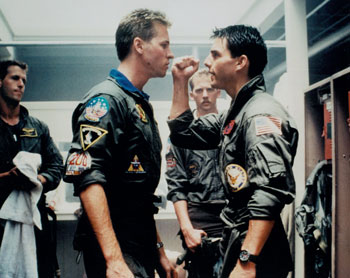And, the Boeing philosophy extends to the throttles. When the engines on a Boeing plane are being controlled by the auto-throttle, the power levers on the aisle stand move to reflect the action of the auto-throttle. The auto-throttle on an Airbus does not move the power levers. They simply remain in the last place they were positioned before the auto-throttle took over. It's that awareness thing again. If the flight control computers determine a power application is needed during some phase of the flight, Boeing pilots will see their power levers move up the quadrant. The only indication Airbus pilots will have is the acceleration of the airplane, possibly the sound of the engines spooling up, and the readings of the engine instruments. In a high-stress, high distraction environment, on final in severe turbulence, for example,these are all things that could be overlooked for several critical moments. That's not to say it's impossible for Boeing pilots to overlook the action of an auto-throttle, but at least they've got some big levers moving under their noses to indicate what's going on.
None of the above may matter to many pilots, but to many others, it will. Just some thoughts.

